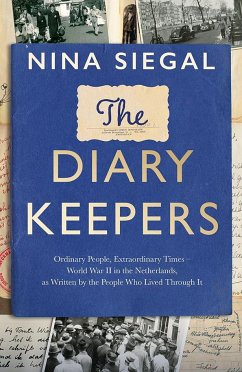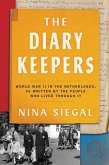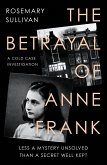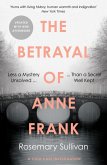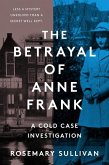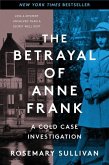Based on select writings from an exceptional Amsterdam archive containing more than two thousand Dutch diaries from World War II, The Diary Keepers illuminates a part of history we haven't seen in quite this way before.
Nina Siegal, an accomplished journalist and novelist, weaves together excerpts from the daily journals of collaborators, resistors, and the persecuted-a Dutch Nazi police detective, a Jewish journalist imprisoned at Westerbork transit camp, a grocery store owner who saved dozens of lives-into a braided nonfictional narrative of the Nazi occupation and the Dutch Holocaust, as individuals experienced it day by day.
Siegal provides the context, both historical and personal, while she tries to make sense of her own relationship to this past. As a "second-generation survivor" born and raised in New York, she attempts to understand what it meant for her mother and maternal grandparents to live through the war in Europe in those times. When Siegal moved to Amsterdam, those questions came up again, as did another horrifying one: Why did 75 percent of the Dutch Jewish community perish in the war, while in other Western European countries the proportions were significantly lower? How did this square with the narratives of Dutch resistance she had heard so much about, and in what way did it relate to the famed Dutch tolerance?
Searching and singular, The Diary Keepers takes us into the lives of seven diary writers and follows their pasts into the present, through interviews with those who preserved and inherited these diaries. Along the way, Siegal investigates the nature of memory and how the traumatic past is rewritten again and again.
Nina Siegal, an accomplished journalist and novelist, weaves together excerpts from the daily journals of collaborators, resistors, and the persecuted-a Dutch Nazi police detective, a Jewish journalist imprisoned at Westerbork transit camp, a grocery store owner who saved dozens of lives-into a braided nonfictional narrative of the Nazi occupation and the Dutch Holocaust, as individuals experienced it day by day.
Siegal provides the context, both historical and personal, while she tries to make sense of her own relationship to this past. As a "second-generation survivor" born and raised in New York, she attempts to understand what it meant for her mother and maternal grandparents to live through the war in Europe in those times. When Siegal moved to Amsterdam, those questions came up again, as did another horrifying one: Why did 75 percent of the Dutch Jewish community perish in the war, while in other Western European countries the proportions were significantly lower? How did this square with the narratives of Dutch resistance she had heard so much about, and in what way did it relate to the famed Dutch tolerance?
Searching and singular, The Diary Keepers takes us into the lives of seven diary writers and follows their pasts into the present, through interviews with those who preserved and inherited these diaries. Along the way, Siegal investigates the nature of memory and how the traumatic past is rewritten again and again.
Praise for The Diary Keepers
'A beautiful, poignant book about the darkest period in modern Dutch history...This book gives a powerful voice to forgotten witnesses' David de Jong, author of Nazi Billionaires
'Nina Siegal has accomplished a remarkable feat. She has given us a day-by-day narrative of the Holocaust in the Netherlands by splicing together excerpts from a few of the hundreds of diaries stored in an Amsterdam archive...With thoughtful and insightful observations of her own, Siegal helps us understand how 75 percent of the 140,000 Jews of Holland, a prosperous and cultivated Western European country, could have been murdered, posing a warning for our own deeply fractured country' Joseph Berger, author of Elie Wiesel: Confronting the Silence
'The Diary Keepers is an astonishing, essential book that asks us to bear witness to an unbearable history, even as it invites us to think hard about what history is-how it gets written, and what stories it tells. This book is powerfully moving and necessarily terrifying. By way of rigorous research and intimate storytelling, Nina Siegal brings us close to her diary keepers-making it impossible to turn away from the difficult, necessary questions their lives raise about survival, suffering, complicity, and memory' Leslie Jamison, author of The Empathy Exams
'Like an archaeologist excavating an ancient temple, Nina Siegal has dug up hundreds of stories of life under the unprecedented horror of Nazism, revealing the changing thoughts and shifting moods of heroes, villains, and victims. Until now, we only had a black-and-white image of these lives. Now, thanks to Siegal, we see them in living color' Benjamin Moser, Pulitzer Prize-winning author of Sontag
'This moving and masterful book tells the history of those fateful war years, and their aftermath, in a wonderfully intimate way' Margot Livesey, author of The Boy in the Field
'A beautiful, poignant book about the darkest period in modern Dutch history...This book gives a powerful voice to forgotten witnesses' David de Jong, author of Nazi Billionaires
'Nina Siegal has accomplished a remarkable feat. She has given us a day-by-day narrative of the Holocaust in the Netherlands by splicing together excerpts from a few of the hundreds of diaries stored in an Amsterdam archive...With thoughtful and insightful observations of her own, Siegal helps us understand how 75 percent of the 140,000 Jews of Holland, a prosperous and cultivated Western European country, could have been murdered, posing a warning for our own deeply fractured country' Joseph Berger, author of Elie Wiesel: Confronting the Silence
'The Diary Keepers is an astonishing, essential book that asks us to bear witness to an unbearable history, even as it invites us to think hard about what history is-how it gets written, and what stories it tells. This book is powerfully moving and necessarily terrifying. By way of rigorous research and intimate storytelling, Nina Siegal brings us close to her diary keepers-making it impossible to turn away from the difficult, necessary questions their lives raise about survival, suffering, complicity, and memory' Leslie Jamison, author of The Empathy Exams
'Like an archaeologist excavating an ancient temple, Nina Siegal has dug up hundreds of stories of life under the unprecedented horror of Nazism, revealing the changing thoughts and shifting moods of heroes, villains, and victims. Until now, we only had a black-and-white image of these lives. Now, thanks to Siegal, we see them in living color' Benjamin Moser, Pulitzer Prize-winning author of Sontag
'This moving and masterful book tells the history of those fateful war years, and their aftermath, in a wonderfully intimate way' Margot Livesey, author of The Boy in the Field

